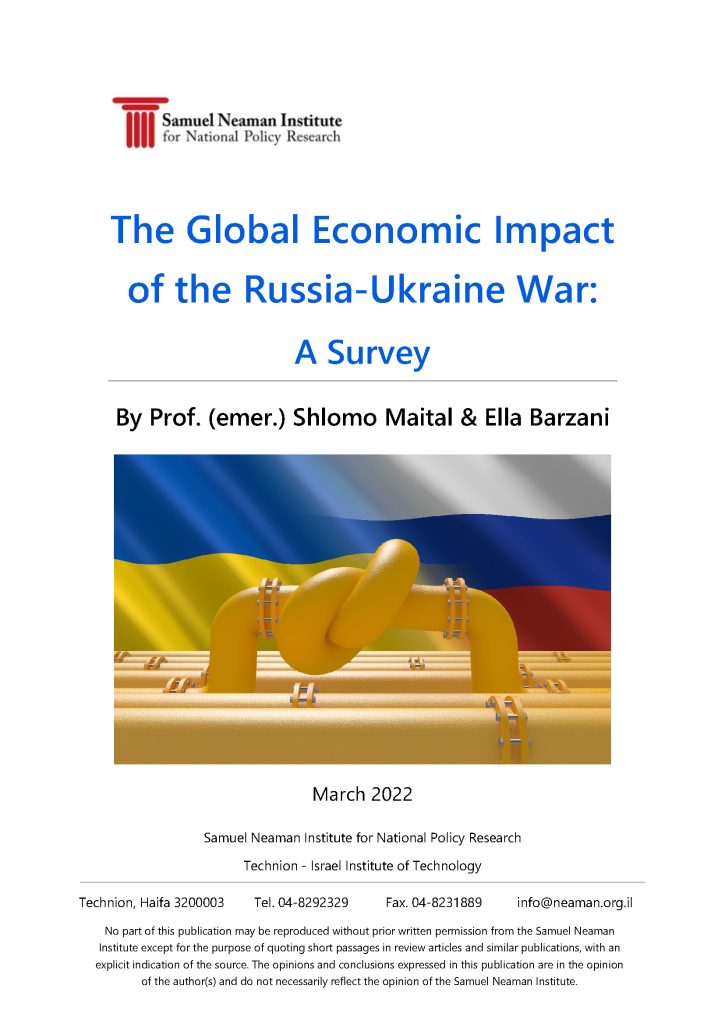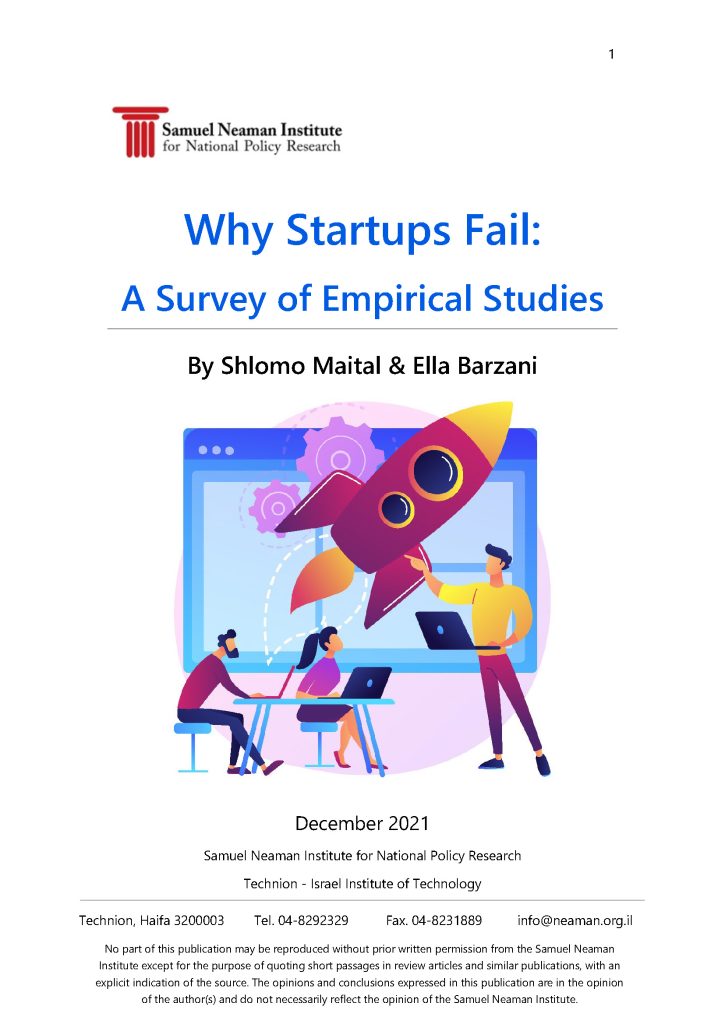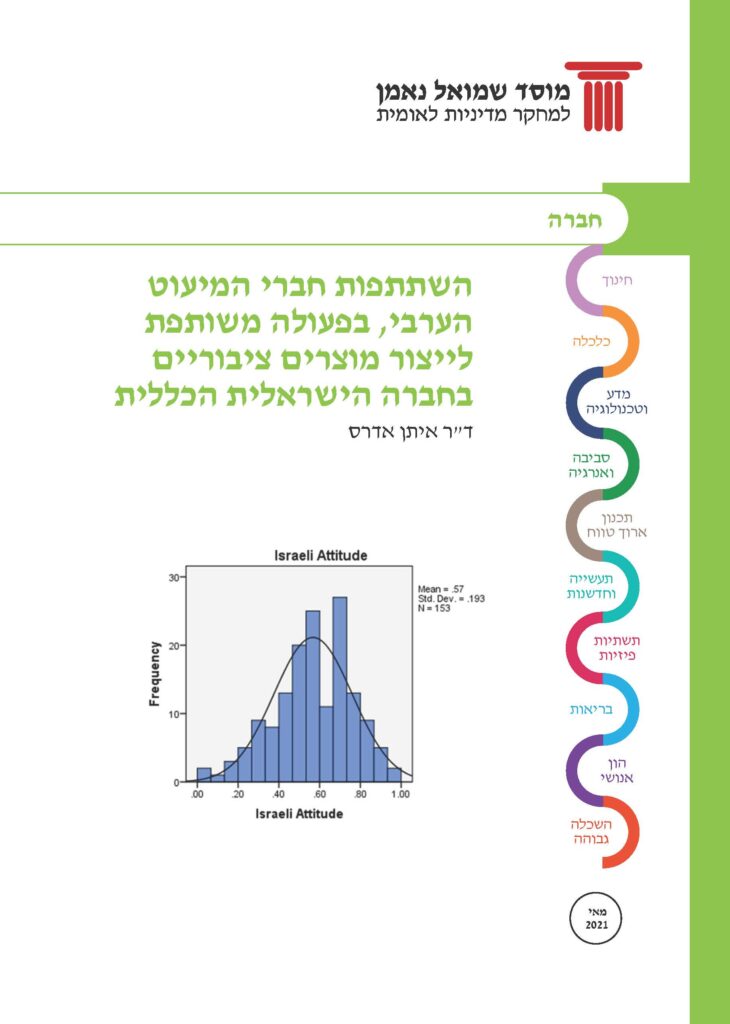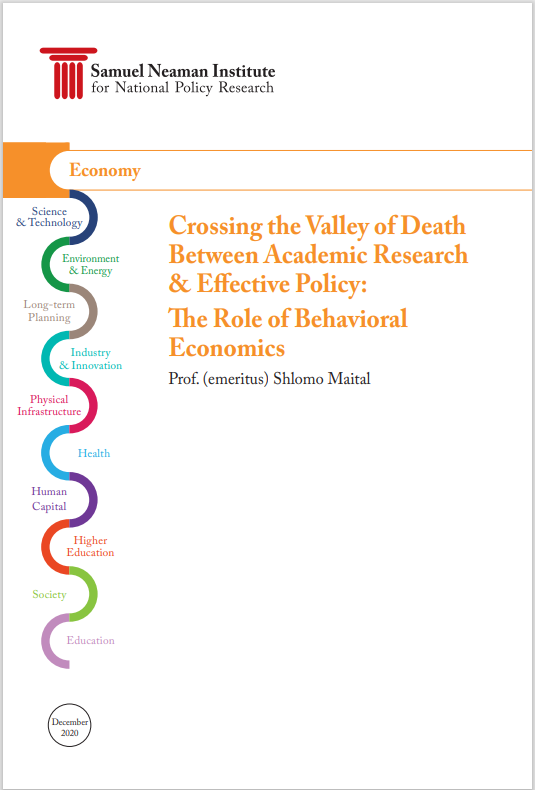Benford’s Law: A survey of its varied applications

Benford’s Law, or Newcomb-Benford Law, states that in many data sets, the leading digits (1’s, 2’s, etc.) will be much more frequent – 30% will be 1’s, for instance. This law has been widely used in many applications, including detection of fraud and data manipulation. This paper surveys some of the more interesting papers, and […]
The Global Economic Impact of the Russia-Ukraine War

This survey was prepared 20 days after Russia launched its invasion of Ukraine. It reviews what we regard as credible knowledgeable insights on: stagflation, supply chain issues, ‘when the guns fall silent’, China as ‘monkey in the middle’, geopolitics and policy recalculation, and a conclusion.
The Economic Impact of the Abraham Accords After One Year: Passions vs. Interests

This brief essay summarizes research on the economic benefits of the Abraham Accords, flowing to the five nations involved: Israel, Morocco, United Arab Emirates, Bahrain, and Sudan. Israel is seen so far as reaping the largest share. The agreement with the United Arab Emirates is by far the most significant, for the two nations. The […]
Why Startups Fail: A Survey of Empirical Studies

90% and more of all hi-tech startups fail. True, innovation is very risky, however the odds of failure can be improved. In this study, we survey the empirical literature on the causes of startup failure and propose that the odds of success can be improved by thorough advance preparation.
Review of the challenges to the Israeli Industry and the business sector in the next decade

A Trial to summarize the major global trends, that will affect the Israeli Industry and the business sector, and to learn from them the needed policy of the Industrial sectors in the next decade. This research is prepared to set the ground for round table discussions within the Centre for Industrial excellence with the participation […]
Arab minority participation in collective action for provision of public goods in the general Israeli society.

The societal and economic integration of the Arab minority is considered an essential factor for Israel.This research inquires how Arab minority members resolve the social dilemma of participation in collective action at the general society level.The recent unrest (May 2021) which un-stabilize co-existence and integration, poses a strategic challenge for Israel as a liberal democracy. […]
The Corona Crisis as a Growth Engine for the North of Israel

This report includes insights and recommendations on the Corona crisis as a growth engine for the north of Israel. It focuses in three areas: Economics & Industry 4.0, Education improvement, and the Social System in the north. This is a result of three roundtables in the above three areas. The work was done in a […]
Towards a reform of the tax system

Israel is facing very large fiscal needs as a result of the COVID-19 crisis and the need to upgrade vital public services after a long period of neglect, and therefore tax increases will be inevitable in the near future. At the same time the many flaws of the Israeli tax system call for urgent reform, […]
Crossing the Valley of Death Between Academic Research and Effective Policy

Why does much valuable academic research fail to impact public policy? I argue that the way forward to relevance and credibility for economics lies through RCT’s – randomized controlled trials, in which the methodology of scientific experimentation joins with the theoretical insights of behavioral economics. By joining the insights of behavioral economics with the rigor […]
Towards a New Fiscal Policy for Israel: Balancing Budgetary Responsibility and Societal Needs

This paper was originally written before the COVID-19 crisis, and therefore it does not address the current challenges facing the Israeli economy due to this severe crisis. However, long-term processes that occurred before the crisis require a reassessment of the economic policies that had prevailed until then. We will refer to the current period in […]
